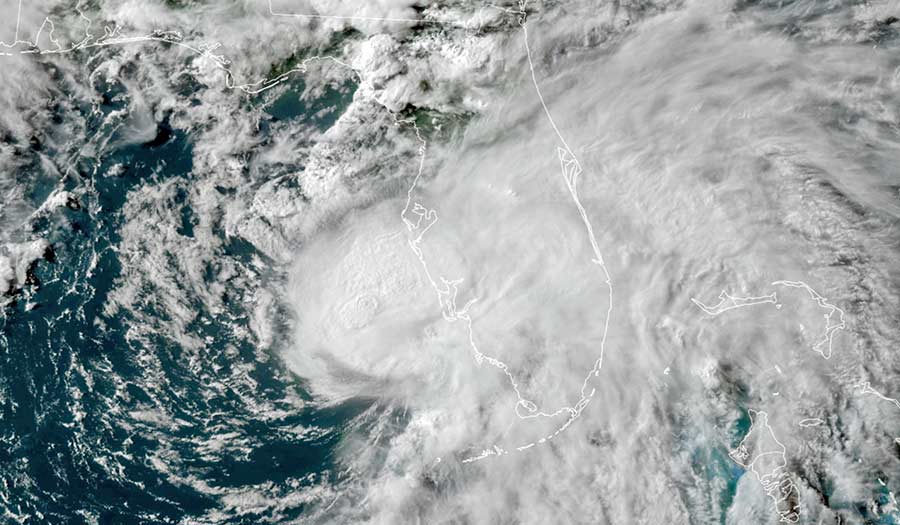 NOAA via AP
NOAA via AP
World News Desk
Learn the why behind the headlines.
Subscribe to the Real Truth for FREE news and analysis.
Subscribe NowThe Associated Press – After a record start, followed by a near-silent July, the Atlantic hurricane season looks like it will be busier than meteorologists predicted a few months ago.
The National Oceanic and Atmospheric Administration on Wednesday updated its outlook for the 2021 Atlantic season, slightly increasing the number of named storms and hurricanes expected in what is predicted to be a busy—but not record-breaking—year.
The agency is now forecasting 15 to 21 named storms instead of the 13 to 20 it predicted in May. Meteorologists also said the number of expected hurricanes is seven to 10, instead of six to 10.
The chance for an above average hurricane season increased from 60 percent to 65 percent, with a 15 percent chance that forecasters will run past the list of 21 storm names. Last year saw a record 30 named storms and forecasters had to use Greek letters by the end of the season.
A reduction in high level cross winds, normal to slightly warmer sea temperatures, increased rains in Africa where seeds of stronger storms start, a possible cooling of the central Pacific and a general period of high storm activity since 1995 are reasons for a busy season, said lead forecaster Matthew Rosencrans.
Colorado State University, which pioneered hurricane seasonal forecasts, last month also increased the number of storms expected in its forecast.
In early July, soon-to-be Hurricane Elsa formed and was the earliest fifth named storm on record, beating a mark set last year. Elsa also formed in the eastern Caribbean and history shows that years when storms develop in eastern Caribbean in June or July it tends to be a busy season, Mr. Rosencrans said.
Hurricane season lasts through the end of November, with its peak running from mid-August to mid-October.
- Real Truth Magazine Articles
- WEATHER & ENVIRONMENT
 Disaster upon Disaster
Disaster upon Disaster
Other Related Items:
More on Related Topics:
- Why Freezing Rain Has Millions at Risk of Losing Power—and Heat
- Firefighters Face Attacks, Drones and Arsonists While Battling Deadly Blazes in Chile
- ‘It’s Not Safe to Live Here.’ Colombia Is Deadliest Country for Environmental Defenders
- ‘Everything Destroyed’ as Indonesia’s Aceh Grapples with Disease After Floods


